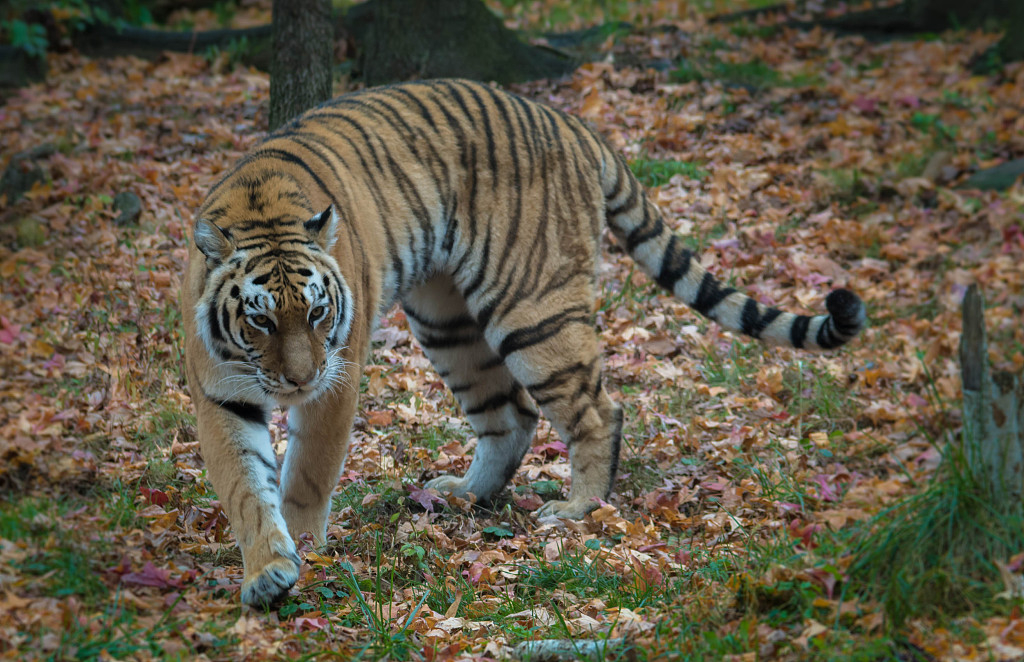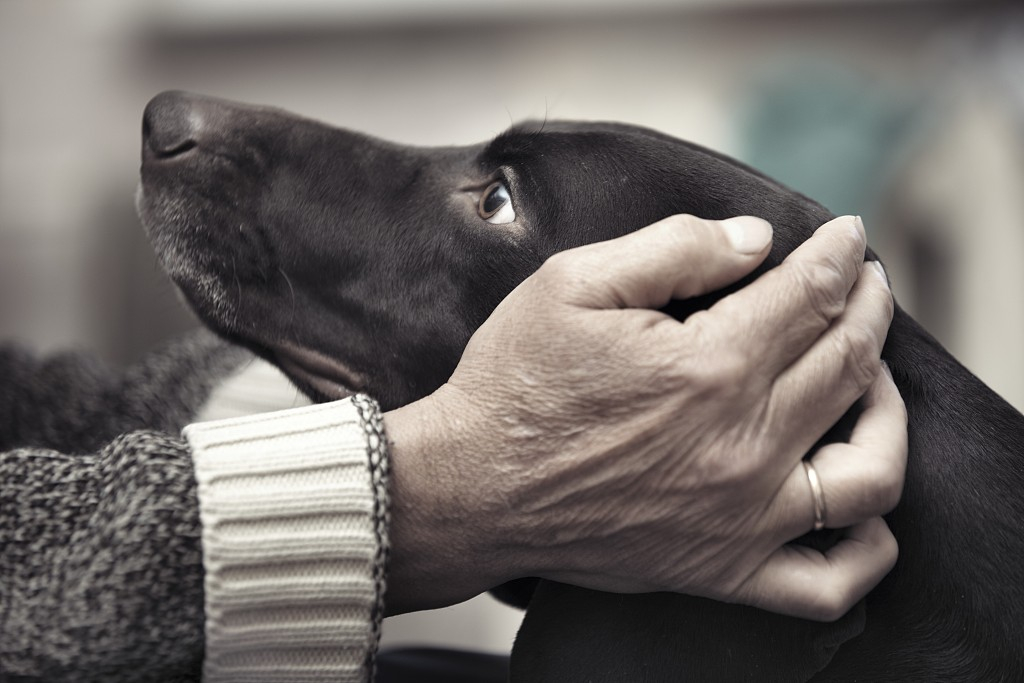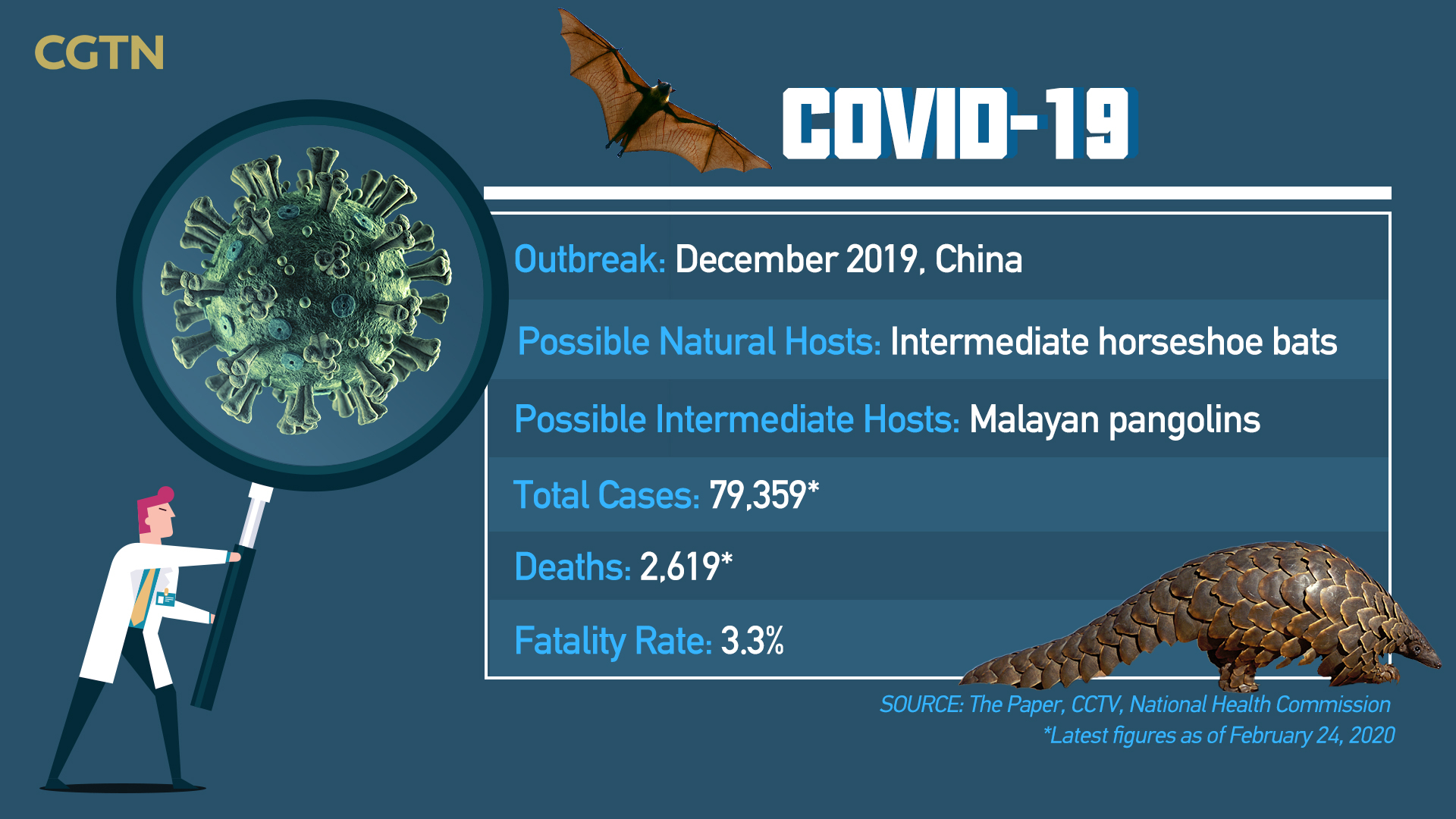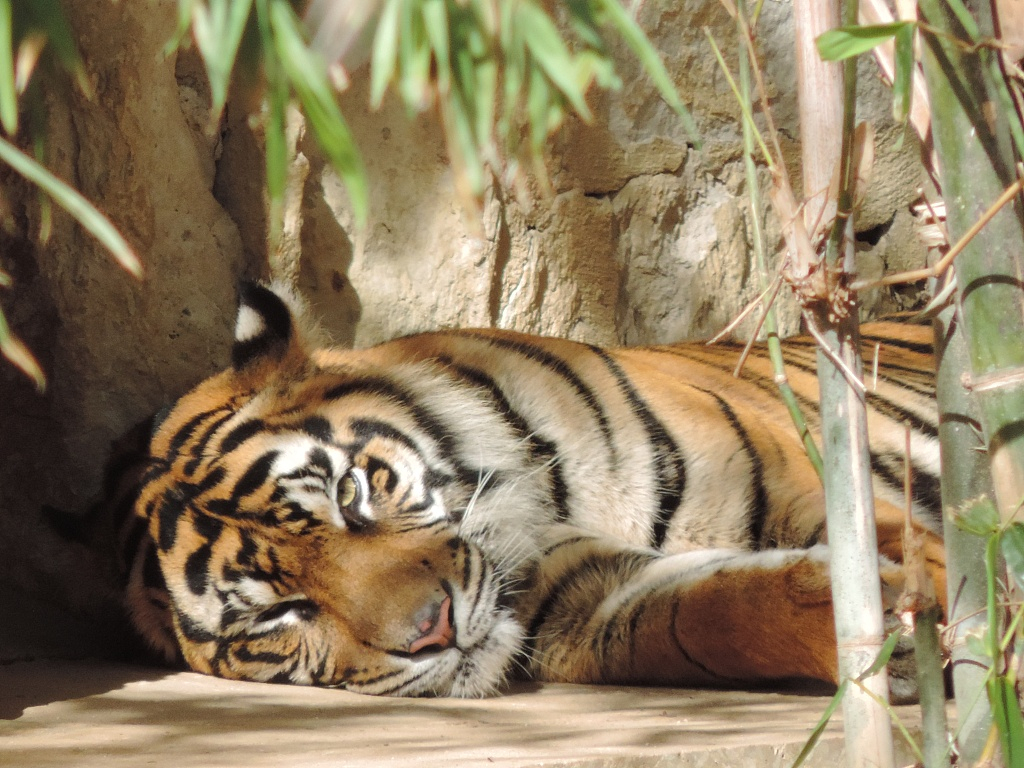A tiger at the Bronx Zoo in New York City has tested positive for the new coronavirus, in what is believed to be the first known infection in an animal in the U.S. or a tiger anywhere, federal officials and the zoo said Sunday.
The 4-year-old Malayan tiger named Nadia — and six other tigers and lions that have also fallen ill — are believed to have been infected by a zoo employee who wasn't yet showing symptoms, the zoo said. The first animal started showing symptoms March 27, and all are doing well and expected to recover, said the zoo, which has been closed to the public since March 16 amid the surging coronavirus outbreak in New York.

A tiger roams in a park. /VCG
A tiger roams in a park. /VCG
The finding raises new questions about transmission of the virus in animals. The U.S. Department of Agriculture, which confirmed Nadia's test result at its veterinary lab, says there are no known cases of the virus in U.S. pets or livestock.
"There doesn't appear to be, at this time, any evidence that suggests that the animals can spread the virus to people or that they can be a source of the infection in the United States," Dr. Jane Rooney, a veterinarian and a USDA official, said in an interview.
The USDA said Sunday it's not recommending routine coronavirus testing of animals, in zoos or elsewhere, or of zoo employees. Still, Rooney said a small number of animals in the U.S. have been tested through the USDA's National Veterinary Services Laboratories, and all those tests came back negative except Nadia's.

A dog and its owner. /VCG
A dog and its owner. /VCG
The coronavirus outbreaks around the world are driven by person-to-person transmission, experts say. But there have been a handful of reports outside the U.S. of pet dogs or cats becoming infected after close contact with contagious people, including a Hong Kong dog that tested positive for a low level of the pathogen in February and early March. Hong Kong agriculture authorities concluded that pet dogs and cats couldn't pass the virus to human beings but could test positive if exposed by their owners.
For more:
Pet cat tests positive for COVID-19 virus in Hong Kong
How to keep wild animals and pets safe while using disinfectant
Some researchers have been trying to understand the susceptibility of different animal species to the virus, and to determine how it spreads among animals, according to the Paris-based World Organization for Animal Health.
The American Veterinary Medical Association and the federal Centers for Disease Control and Prevention have been recommending that out of an abundance of caution, people ill with the coronavirus should limit contact with animals — advice that the veterinary group reiterated after learning of the tiger's test result.
For more:
Epidemics and Wildlife: Are pangolins intermediate hosts of novel coronavirus?

Facts on COVID-19. /CGTN Graphic by Liu Shaozhen
Facts on COVID-19. /CGTN Graphic by Liu Shaozhen
At the Bronx Zoo, Nadia, her sister Azul, two Amur tigers and three African lions developed dry coughs, and some of the cats exhibited some wheezing and loss of appetite, said Dr. Paul Calle, the zoo's chief veterinarian.
The staff figured there could be a relatively routine explanation for the cats' symptoms but tested Nadia for coronavirus out of "due diligence and an abundance of caution," Breheny said. Only Nadia was tested because it takes anesthesia to get a sample from a big cat, and she had already been knocked out to be examined.

A tiger enjoys the sun. /VCG
A tiger enjoys the sun. /VCG
The seven sickened cats live in two areas at the zoo, and the animals had contact with the same worker, who is doing OK, zoo officials said. They said there are no signs of illness in other big cats on the property.
Staffers who work with the cats will now wear infection-protection garb, as primate keepers have done for years because of the animals' closer genetic ties to human beings, Breheny said.
(Cover image via VCG)
(If you want to contribute and have specific expertise, please contact us at nature@cgtn.com)
Source(s): AP